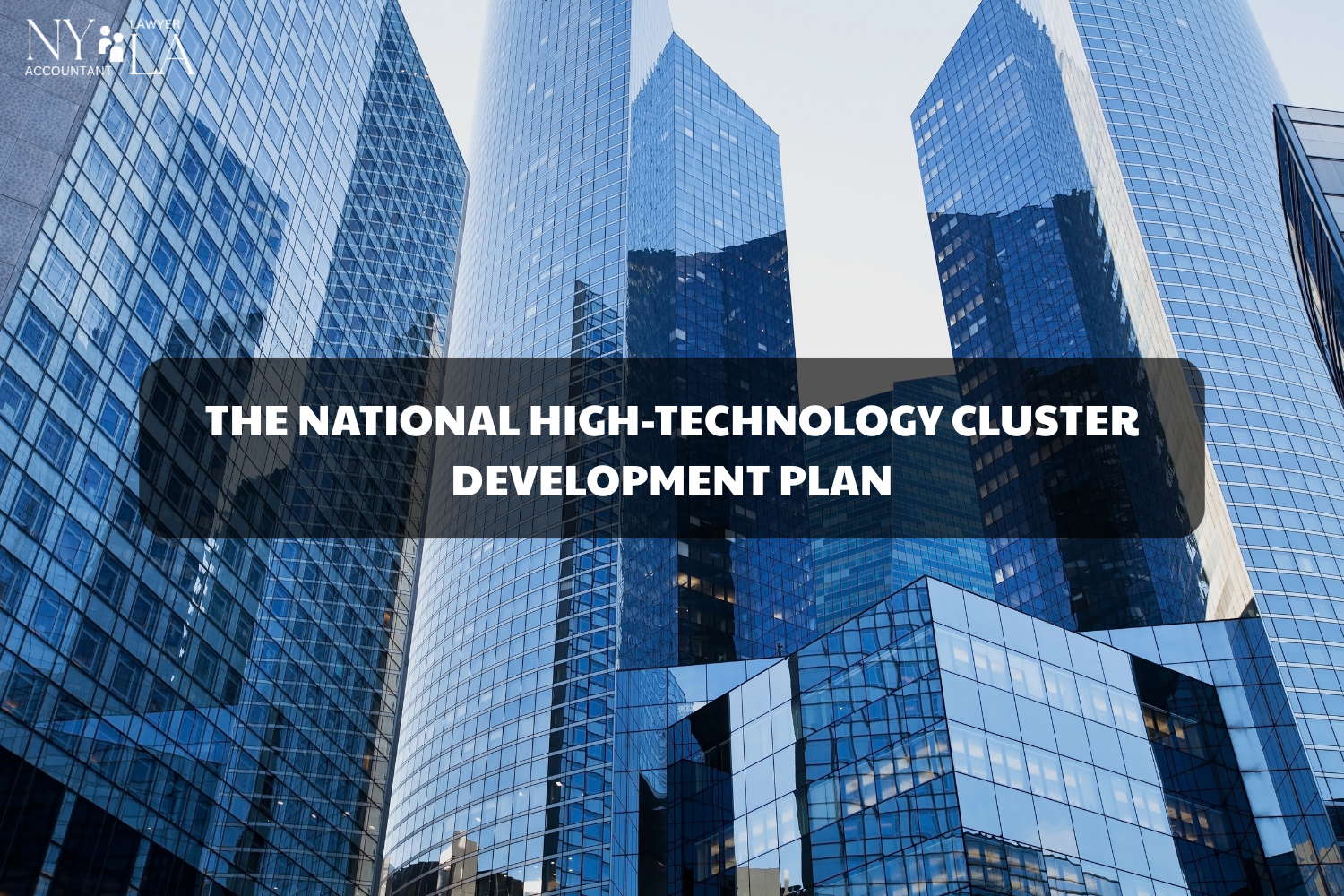The rapid emergence of high-tech industrial clusters in Korea reflects the country’s ambition to become a global hub for future industries. Backed by strategic government policies, these clusters are fostering innovation, regional economic development, and international investment.
Summary
- 1. Overview of High-Tech Industrial Clusters in Korea
- 2. Regional Development Strategy for High-Tech Clusters
- 3. Key Government Support Policies
- 4. Integration with Nearby Innovation Ecosystems
- 5. Workforce Development for High-Tech Industries
- 6. Early Testing and Planning for Faster Execution
- 7. Green and Smart Initiatives for Sustainable Growth
- 8. Investment Opportunities in High-Tech Clusters
- 9. Conclusion: Korea’s Vision for the Future
- 10. About NYLA – Korean Legal Office
1. Overview of High-Tech Industrial Clusters in Korea
High-tech industrial clusters in Korea are purpose-built areas where high-technology industries are concentrated, such as semiconductors, future mobility, aerospace, and nuclear energy. These clusters are designed to promote synergy among enterprises, research institutes, and academia.
Currently, there are around 15 national high-tech industrial complexes across the country, covering a total area of approximately 40.76 million square meters. These clusters are not only centers for innovation but also act as economic growth engines, supported extensively by the Korean government.
2. Regional Development Strategy for High-Tech Clusters
To enhance the success of high-tech industrial clusters in Korea, the Korean government adopts a bottom-up approach. Local governments first analyze their regional strengths and challenges. Based on this, they propose strategic plans for developing industrial clusters tailored to their region’s unique needs.
These proposals are then reviewed and approved by the central government, ensuring alignment with national industrial goals. The process strengthens the foundation for regionally balanced and specialized high-tech development.

3. Key Government Support Policies
The growth of high-tech industrial clusters in Korea is strongly supported by flexible regulatory frameworks and infrastructure investments. The government has relaxed regulations on Restricted Development Zones (RDZ) to make land selection easier and faster. These adjustments remove critical obstacles that previously delayed cluster formation.
Clusters such as MOTIE (Ministry of Trade, Industry and Energy) complexes and Urban Innovation Centers (under MOLIT – Ministry of Land, Infrastructure and Transport) are now primarily situated in non-capital regions to reduce congestion and decentralize development.
4. Integration with Nearby Innovation Ecosystems
The success of high-tech industrial clusters in Korea does not depend solely on infrastructure but also on how well they integrate with surrounding innovation ecosystems. Korea aims to connect these clusters with nearby industrial and research institutions to ensure seamless collaboration in research, development, and commercialization.
These links also support the transfer of knowledge, fostering an environment of open innovation. The interconnected system allows businesses within the clusters to scale faster and attract international partners.
5. Workforce Development for High-Tech Industries
Human capital is a critical success factor for high-tech industrial clusters in Korea. To meet the growing talent demand, the government is investing heavily in STEM education and expanding curricula in local universities and technical schools.
A special focus is given to training professionals in high-demand areas such as semiconductor manufacturing and advanced robotics. This localized training ensures a steady pipeline of qualified workers for cluster-based industries.
6. Early Testing and Planning for Faster Execution
To ensure timely execution of cluster projects, Korea is introducing preliminary testing and simulations before the full-scale launch of industrial complexes. This preemptive approach minimizes risks and ensures that infrastructure and technical requirements are well-understood in advance.
Moreover, the establishment of the “Intergovernmental Promotion Group for the National High-Tech Industrial Belt” allows for cross-ministerial cooperation, enhancing coordination from planning to execution. This mechanism ensures that businesses are involved from the beginning.
7. Green and Smart Initiatives for Sustainable Growth
Recognizing the environmental challenges ahead, the government has introduced the Basic Plan for Green and Smart Industrial Complexes. This policy aims to make high-tech industrial clusters in Korea carbon-neutral and climate-resilient.
These smart complexes will feature eco-friendly infrastructure, digital monitoring systems, and improved living conditions for workers. By enhancing sustainability and quality of life, the government hopes to attract global talent and long-term investments.
8. Investment Opportunities in High-Tech Clusters
With a comprehensive development strategy and government backing, high-tech industrial clusters in Korea present lucrative opportunities for both domestic and international investors. The focus on future industries and sustainable practices ensures long-term growth potential.
Global companies looking to enter the Asian tech market will find Korea’s high-tech clusters to be ideal locations for R&D centers, manufacturing hubs, and partnerships with innovative startups.
9. Conclusion: Korea’s Vision for the Future
As Korea continues to strengthen its industrial base, high-tech industrial clusters in Korea are becoming essential platforms for innovation, economic decentralization, and international collaboration. By fostering integration, sustainability, and talent development, these clusters are well-positioned to drive Korea’s vision of becoming a global technology leader.
For businesses and investors, engaging with these clusters offers a strategic pathway to future-ready growth in one of Asia’s most dynamic economies.
10. About NYLA – Korean Legal Office

■ NYLA – Your Trusted Legal Partner in Korea
At NYLA, we understand that the success of foreign businesses in Korea requires not only a solid business strategy but also reliable legal support. With a team of experienced Korean attorneys and legal professionals, NYLA provides tailored legal services for companies, investors, and individuals operating or planning to establish a presence in Korea.
We support our clients throughout the entire business journey with comprehensive services, including:
- Legal consultation on company establishment, taxation, and immigration;
- Advice on commercial real estate, franchising, and product distribution;
- Support in human resources, marketing, and business strategy.
In addition to legal advisory, NYLA also represents clients in civil litigation cases related to business, labor, marriage, family, and inheritance to ensure their rights and interests are fully protected.
■ Contact NYLA

If you’re a foreign business or individual looking for a reliable legal partner in Korea, NYLA is here to help. We are committed to delivering effective, practical, and personalized legal solutions for every client.
With a proven track record of assisting hundreds of international clients, our team is equipped to help you navigate complex legal challenges—whether it’s commercial disputes, contract issues, or foreign investment guidance.
Don’t let legal matters hold you back. Let NYLA be your trusted guide in the Korean market.
■ Get in touch with NYLA for expert legal support
| Website: https://nylakoreanlegal.com/
FB: https://www.facebook.com/nyla.koreanlegal Tiktok: https://www.tiktok.com/@nylakoreanlegal Youtube: https://www.youtube.com/@NYLA-xd8qx Email: info.NYLAkoreanlegal@gmail.com SĐT: +82 10-3415-7859 |
 |






















































